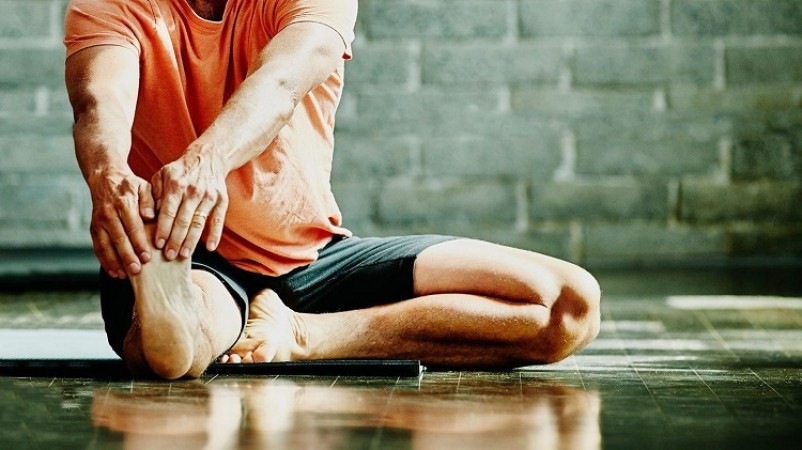
Arthritis, a prevalent health condition that affects millions of individuals worldwide, is characterized by joint inflammation, pain, stiffness, and reduced mobility. While it poses significant challenges, especially for those living with it, there's hope in the form of physical activity. On World Arthritis Day, we explore the pivotal role that exercise plays in managing arthritis symptoms, with insights from Dr. Ashwani Maichand, Director of the Department of Orthopaedics at the CK Birla Hospital (R), Delhi. Arthritis encompasses various forms, with osteoarthritis and rheumatoid arthritis being the two most common types.
Understanding Arthritis
Osteoarthritis, also known as degenerative joint disease, develops due to the gradual erosion of the cartilage that cushions and protects our joints. As this cartilage wears away, it leads to rigidity and pain, impairing the overall joint function. On the other hand, rheumatoid arthritis is an autoimmune condition, where the body's immune system mistakenly attacks the synovium, the linings of the membranes that surround the joints. This results in inflammation, pain, and stiffness, making even daily activities a challenge.
The Impact of Arthritis on Quality of Life
Living with arthritis is not just about enduring pain; it can significantly impact one's quality of life. The discomfort and stiffness in the joints can make everyday tasks, such as walking, dressing, or even picking up a cup, exceedingly difficult. Additionally, arthritis often leads to feelings of frustration, helplessness, and a sense of losing control over one's life.
The Role of Exercise in Managing Arthritis
While arthritis can be a formidable adversary, exercise can be a potent ally in managing its symptoms and improving joint health. It might seem counterintuitive to move more when experiencing joint pain and stiffness, but Dr. Maichand emphasizes that exercise is a crucial component of arthritis management. Here are some key factors related to the role of exercise:
Pain Management: Regular exercise helps to reduce pain by strengthening the muscles that support the joints. Stronger muscles can help alleviate the stress on the joints, thereby reducing pain and discomfort.
Improved Mobility: One of the most challenging aspects of arthritis is reduced mobility. Exercise helps maintain and improve joint flexibility, allowing individuals to perform daily activities more easily.
Weight Management: Maintaining a healthy weight is vital for arthritis patients. Extra weight puts additional strain on the joints, exacerbating the condition. Exercise, in combination with a balanced diet, can help manage weight.
Enhanced Joint Function: Exercise can enhance the overall function of the joints. It can also help prevent the progression of osteoarthritis by promoting the production of synovial fluid, which lubricates the joints.
Mental Well-being: Arthritis often takes a toll on mental health. Regular physical activity can boost mood, reduce stress, and improve overall mental well-being.
Types of Exercise for Arthritis
There are various types of exercises recommended for individuals with arthritis. These include:
Range of Motion Exercises: These exercises focus on maintaining and improving joint flexibility, reducing stiffness, and enhancing overall mobility.
Strength Training: Strengthening exercises target the muscles around the affected joints, providing better support and reducing pain.
Aerobic Exercise: Activities like walking, swimming, and cycling help improve cardiovascular health and maintain a healthy weight.
Balance Exercises: Balance and stability exercises can prevent falls, a common concern for arthritis patients.
It's essential to work with a healthcare professional or physical therapist to develop a personalized exercise plan tailored to your specific type of arthritis and its severity.
On World Arthritis Day, we must recognize that arthritis doesn't have to dictate one's life. Dr. Maichand's expert insights highlight the pivotal role of exercise in managing symptoms and improving joint health. By embracing a regular exercise routine, individuals living with arthritis can experience less pain, improved mobility, and an enhanced quality of life. Remember, exercise is not a one-size-fits-all solution; consult with your healthcare provider to create a tailored exercise plan that suits your needs and condition. Arthritis might be a challenging opponent, but with the right approach, you can still lead a fulfilling and active life.